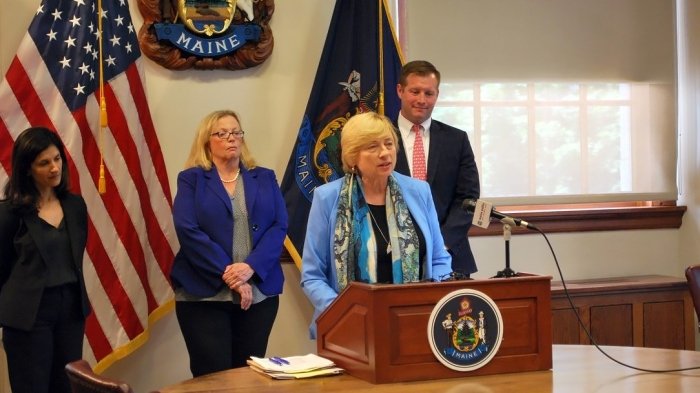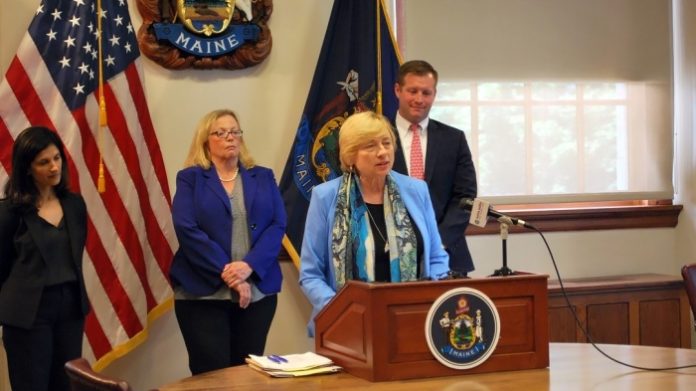
I
n a four-page letter to the Legislature explaining why she denied the bill, Gov. Mills listed several reasons she vetoed the bill, including state tax issues and the absence of state-regulated health and safety protocols. She also noted that the current bill does not have limitations on the size and placement of casinos.
But Mills said the bill, which would have restored federal gaming rights that were stripped from the tribes in a 1980 law that settled a land dispute between the tribes and the state, was fraught with problems.
“This bill provides no predictability or meaningful limitations on where tribal gaming may occur, or on the size of each facility,” Mills wrote. “The tribal gaming facilities that the legislation would authorize could be large or small, anything from a grand casino to a few slot machines in a convenience store, and the state and adjacent non-tribal communities would have little or no influence over their placement. “
“The terms of the bill anticipate the possibility of a successful legal challenge by building in
contingent provisions. But the prospect of expensive and time-consuming litigation over these
issues is troubling and urmecessary. Legislation that provides for tribal gaming does not have to,
and should not, set the stage for legal conflict which would exacerbate tensions at a time when
we are working hard to improve relationships,” stated Gov. Mills.
Leaders from the four tribes reacted harshly to the veto in a prepared statement issued shortly after the Mills administration released the veto message.
“Governor Mills provides lip service to wanting to engage on tribal issues. However, if she thought they were important she would meet with tribal leaders to discuss updating the (1980) Settlement Act more than two times over the last two years. Governor Mills missed a great opportunity to catch up with the other states that work with the other 570 federally recognized tribes,” said Chief Maggie Dana of Passamaquoddy Tribe at Pleasant Point.
Chief Kirk Francis of the Penobscot Nation offered some praise for the Legislature and Maine Attorney General Aaron Frey. “We appreciate the time and energy the legislators from both parties, legislative staff, the attorney general and his staff have put into tribal issues,” Francis said.
Chief Clarissa Sabattis of the Houlton Band of Maliseet said Mills had sided with existing gambling interests from out of state instead of with rural Maine people.
“The proceeds from tribal gaming stay in rural Maine and are not sent out to corporate headquarters in Kentucky and Pennsylvania,” Sabattis said.
The Legislature will likely take a vote on overriding the veto when it returns to work this Thursday afternoon.
Original article: https://www.yogonet.com/international//noticias/2021/07/01/58217-gov-mills-vetoes-bill-to-provide-gaming-rights-to-maine-tribes














